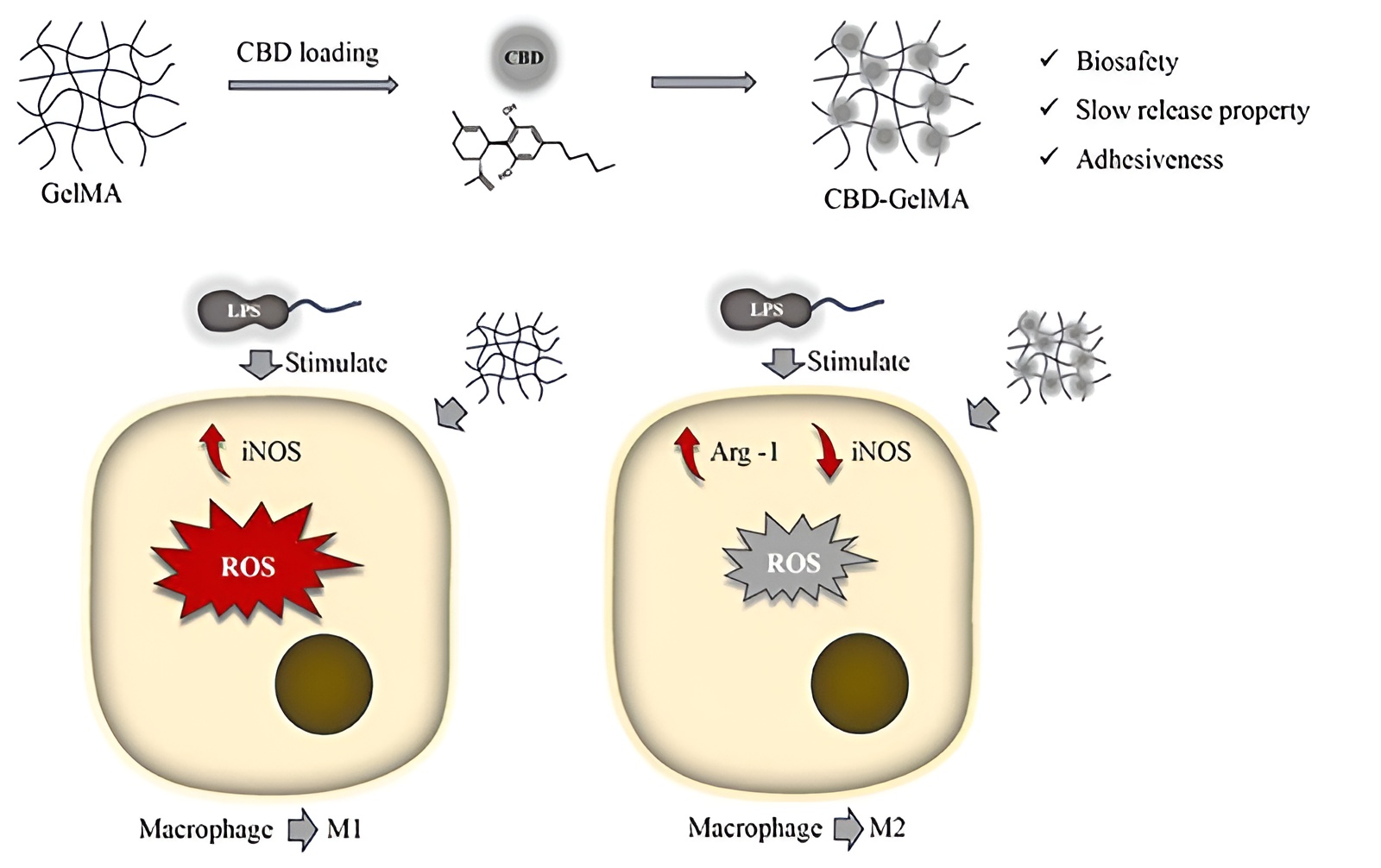Researchers from Jiamusi University, Tianjin First Central Hospital, and Nankai University in China have developed a novel CBD-loaded hydrogel system that may offer a new therapeutic approach for chronic inflammatory bowel disease (IBD), according to a new study.

Published in the Journal of Applied Biomaterials & Functional Materials, the study addresses the growing incidence of IBD, a condition marked by persistent inflammation and a high recurrence rate.
The research team designed a hydrogel (GelMA + CBD) capable of delivering cannabidiol (CBD) in situ, improving its bioavailability through slow release. The hydrogel’s structure, observed under scanning electron microscopy, demonstrated favorable properties such as controlled swelling and release rates. This innovative system allows CBD, known for its anti-inflammatory and antioxidant effects, to be released steadily, overcoming its natural limitations like poor solubility and low bioavailability.
In vitro experiments confirmed the hydrogel’s biosafety and its ability to modulate the immune response. Specifically, it reduced inflammation by regulating macrophage polarization—shifting from a pro-inflammatory M1 type to an anti-inflammatory M2 type. The hydrogel also decreased the levels of inflammatory markers like iNOS while increasing anti-inflammatory factors such as Arg-1. Additionally, it cleared reactive oxygen species (ROS), reducing oxidative stress.
The results suggest that a CBD-infused hydrogel could become a viable treatment option for chronic inflammatory conditions like IBD, offering targeted and sustained relief from inflammation.






